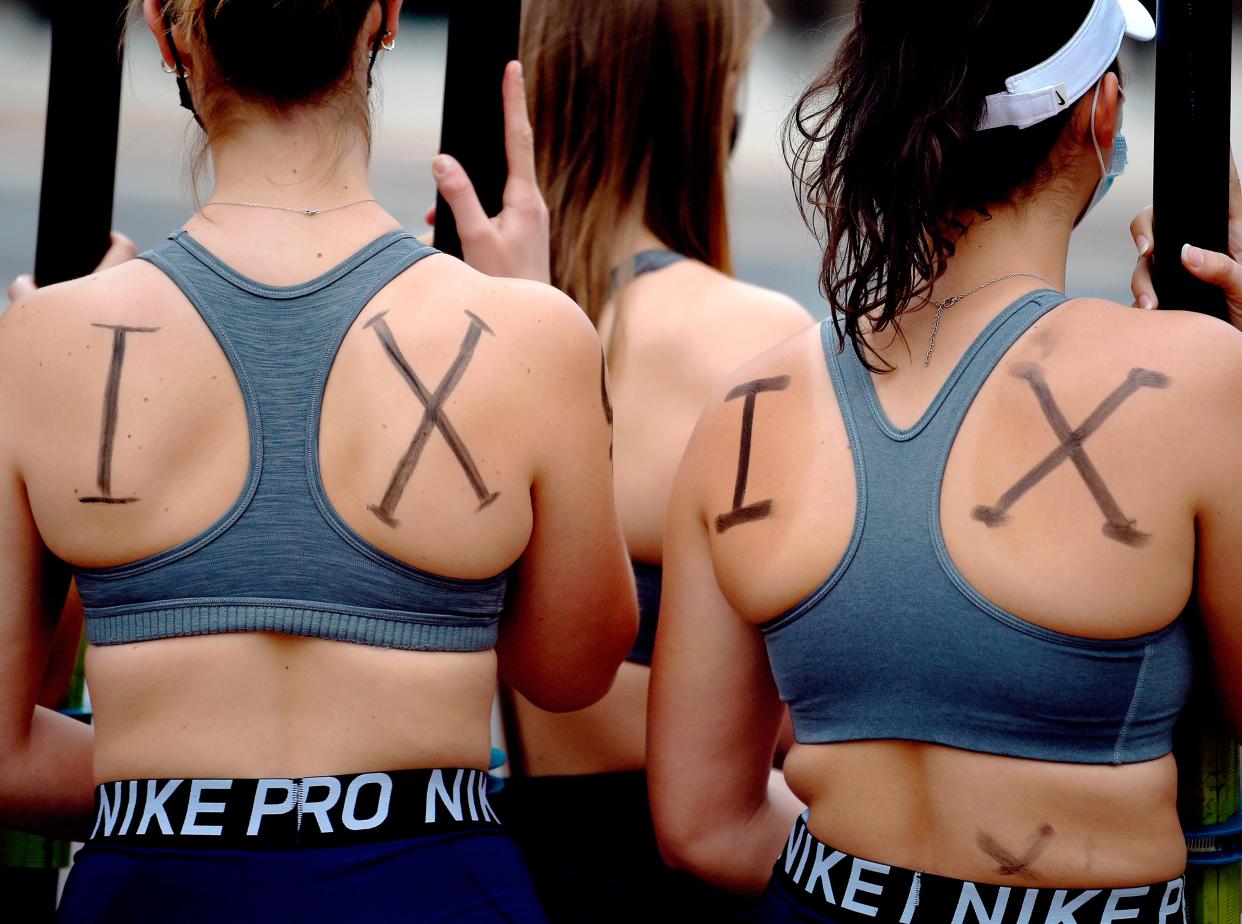With Title IX we all win

College is about learning and experience is the best teacher as students cannot live on theory alone. They have to get their hands dirty.
On Thursday, we celebrated the 50th anniversary of the signing of what I consider to be one of the most important single pieces of legislation ever passed. I rank it up near the Voting Rights Act and the Civil Rights Act, in terms of its actual effect on millions of people. Athletics have always been part of a truly complete College or University experience, but until the passage of Title IX on June 23rd, 1972, this experience was largely open only to men.
Plato, to my mind, had it right. Education has to be a “whole person” process, body and mind. “Lack of activity destroys the good condition of every human being, while movement and methodical physical exercise save it and preserve it,” he wrote.

In “The Playing Fields of Eton” Mika LaVaque-Manty uses athletics to write of the tension that exists between excellence and equality in the modern democratic meritocracy. But when 50% of the population is refused admittance to either, the pool is pretty shallow and the whole idea of “merit under equality” is a lie.
What is often left out of the equation is the fall-out – the collateral advantages – that Title IX has created. In my own case, I have been the direct beneficiary of the rise of women’s roles in athletics and in the college environment generally. In my career, both as a former coach and equally importantly, as a current academic, my most influential mentors and role models have been women - people who would simply have not had the opportunity to do what they do so well without the support of Title IX and its wider ramifications. Currently, the true visionary leading my entire institution is a woman who might have been denied her opportunity a few decades before.
Athletics, from the highest-level varsity teams to intramural competitions and “pickup” games among friends, teaches so many skills and values so very central to development of Plato’s “whole person” - training the brain and the social person, as well as developing healthy habits for the body. Athletics is an isomorph, a simpler model, for all of life’s real-world challenges. It teaches persistence, the value of perfecting through practice, cooperation, support to and from others in victory (and adversity), loyalty, respect, time management and, let’s face it, the pure fun of clean competition.
This simply makes for better-prepared students in academics as well. My own institution is NCAA Division Two, and only a small proportion of our student population are varsity athletes. But the sheer number of women students who have played in middle school, or high school, or have had athletic experiences as summer camp kids or as children in a local soccer program, is amazing.
With the concomitant growth of adaptive sports programs for kids of all abilities, athletics is becoming an ever more common experience. In 1972, the number of girls and women playing organized sports was 1 in 27. Since its passage that number has been most recently cited as 2 in 5. I’ve seen the effect of this on the playing pitches and in the arenas, but I feel it very, very strongly in the classroom.
Title IX says: “No person in the United States shall, on the basis of sex, be excluded from participation in, be denied the benefits of, or be subjected to discrimination under any educational program or activity receiving Federal financial assistance.” In the past 50 years, Title IX has gone far beyond athletics. Equality is just a word when women are excluded from the experience of seeking excellence on every dimension.
Title IX, and all of its implications, means enabling women to pursue the challenges and opportunities of life on an equal footing and isn’t that the central tenet of the American experience?
R. Bruce Anderson (randerson2@flsouthern.edu) is the Dr. Sarah D. and L. Kirk McKay Jr. Endowed Chair in American History, Government, and Civics at Florida Southern College in Lakeland.
This article originally appeared on The Ledger: With Title IX we all win

